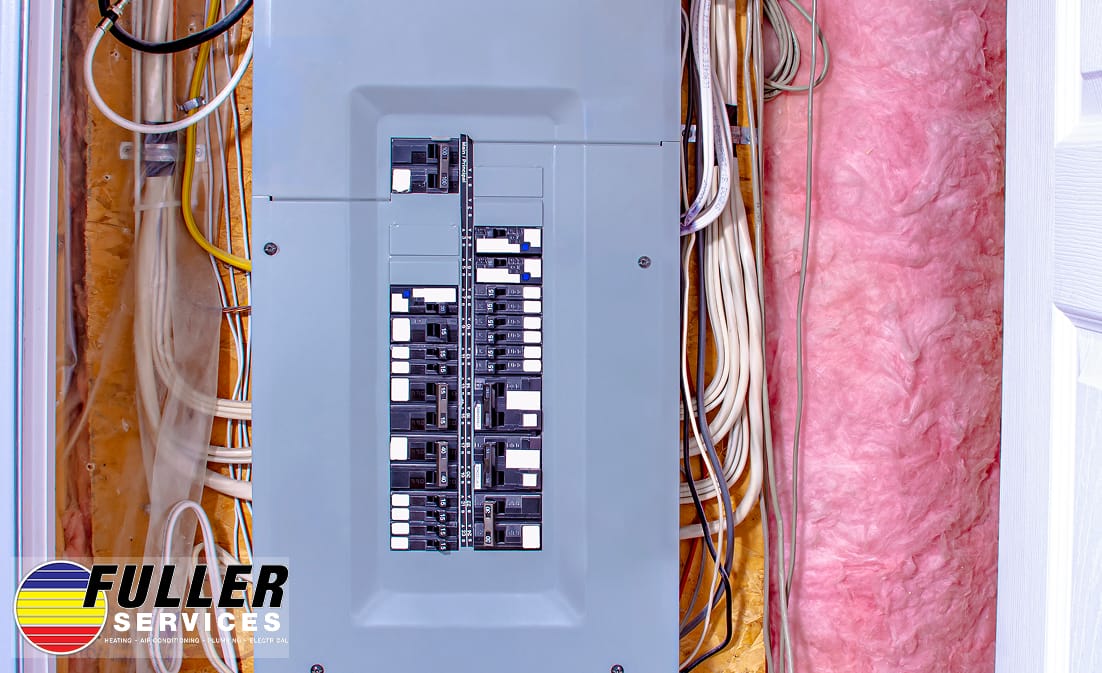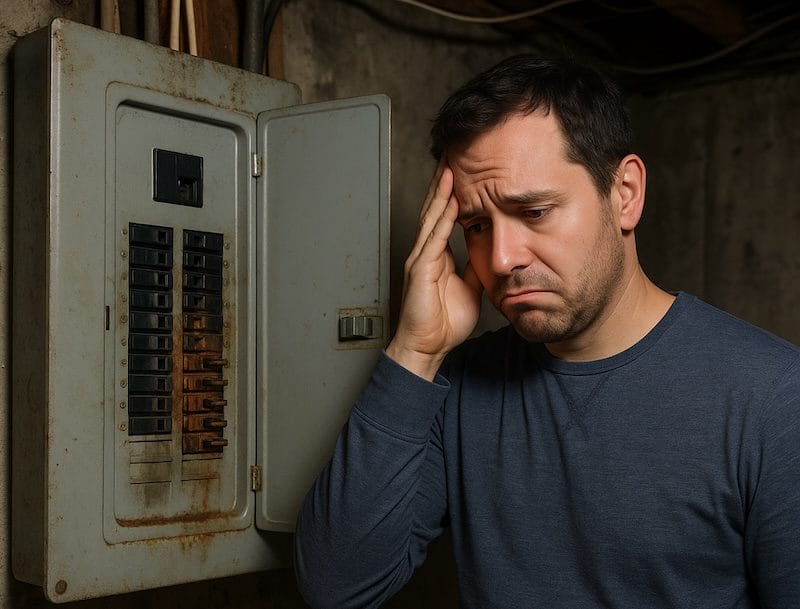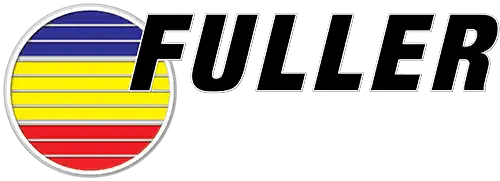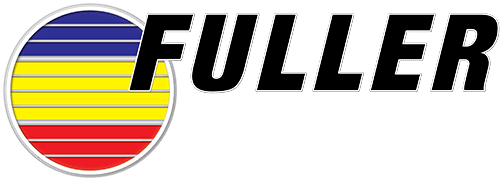
Your home’s electrical panel works quietly behind the scenes. When it starts struggling, the signs become hard to ignore. As an electrical company, we see this connection regularly. Electrical issues directly impact your heating and cooling performance.
Your electrical panel is the heart of your power system. When it can’t keep up with modern demands, everything suffers. Your comfort takes a hit. Your safety becomes a concern.
Many homeowners miss this important connection. An outdated electrical panel makes your electrical system work much harder than necessary. It costs more money to operate and reduces equipment efficiency. When your heating and cooling equipment compensates for an inadequate power supply, you’ll see it in your energy bills.
Recognizing warning signs early can save you money. It prevents safety hazards and ensures your electrical system can handle today’s energy needs.
Today, we’ll provide you with eight clear indicators that it might be time for an upgrade.
1. Your Circuit Breakers Trip Frequently
We’ve all experienced the occasional tripped breaker. When it becomes a weekly or daily occurrence, something’s not right. Circuit breakers protect your home by shutting off power when circuits become overloaded. They shouldn’t be tripping constantly under normal use.
Pay attention to breakers that trip when your electrical starts up. Modern heating and cooling systems draw significant power during startup cycles. If your panel can’t handle this demand, you’ll notice problems. Breakers will trip when the AC or heat pump kicks on.
This isn’t just inconvenient. It’s a sign your electrical system is struggling to keep up. Frequent tripping often means your panel is too small for your home’s needs. It could also mean the breakers themselves are wearing out. Either way, it’s time for a professional evaluation.
2. You’re Still Using a Fuse Box Instead of Circuit Breakers
Say your home was built before the 1970s. If that’s the case, you’re still dealing with fuses instead of modern breakers, outdated technology that has serious limitations.
Fuses can only be used once before they need replacement. They don’t provide the same protection as modern circuit breakers. More importantly, older fuse boxes weren’t designed for today’s electrical loads. Your HVAC system alone probably draws more power than your home was originally wired to handle.
Having an outdated fuse box affects your homeowner’s insurance rates. It can make your home harder to sell. Most buyers see fuse boxes as red flags that signal potential electrical problems.

3. Your Panel Shows Signs of Physical Damage or Wear
Your electrical panel should look clean and well-maintained. Any visible damage or wear is a serious red flag. They shouldn’t be ignored under any circumstances.
Take a close look at your panel. Watch for these warning signs:
- Rust or corrosion around the panel or on individual breakers
- Burn marks or black spots on the panel or the surrounding wall
- A burning smell is coming from the panel area
- Breakers that feel warm to the touch
- Loose or frayed wires are visible in the panel
- Crackling or buzzing sounds coming from the panel
These symptoms indicate dangerous conditions. Overheating, arcing, and moisture intrusion can all lead to electrical fires. Electrocution hazards are real possibilities with damaged panels. If you notice any physical damage, contact a qualified electrician immediately.
4. You Experience Frequent Power Surges or Electrical Issues
Does your home’s lighting dim when the air conditioner starts? Do appliances shut off unexpectedly or cycle without explanation? These are classic signs of an electrical system struggling to provide stable power.
Power fluctuations are particularly hard on HVAC equipment. Your heating and cooling system doesn’t receive consistent power. It has to work harder to maintain comfort levels. This extra strain shortens equipment life and increases energy bills over time.
Modern electrical panels provide stable power distribution throughout your home. If you’re experiencing frequent power issues, your panel might not be adequate. This is especially true when major appliances are running. If you’re experiencing frequent power issues, choosing a home generator or a portable generator as part of your backup power plan can ensure your prepared during outages.
5. Your Home Still Has an Older Panel Brand with Known Issues
Some electrical panel brands have documented safety issues. These were manufactured between the 1950s and 1990s. Federal Pacific Electric panels, Zinsco panels, and Pushmatic panels are among the most problematic.
These panels have higher failure rates. They’ve been linked to electrical fires throughout the country. Federal Pacific panels have breakers that may not trip when they should. This creates serious fire hazards. Zinsco panels have breakers that can’t be removed safely. Their connections deteriorate over time.
If you have any of these brands, replacement should be a priority. Even if they seem to work fine, they represent significant safety risks. The potential consequences of panel failure far outweigh replacement costs. Insurance companies are increasingly reluctant to cover homes with these problematic panels.
6. You’re Planning Major Home Renovations or HVAC Upgrades
You’re considering a major renovation or HVAC system upgrade. Now is the perfect time to evaluate your electrical panel. New heating and cooling equipment is more efficient than older models. It may also have different electrical requirements.
High-efficiency heat pumps need an adequate electrical supply to function properly. Smart thermostats require proper connections. Advanced air filtration systems have specific power needs. If your current panel is near capacity, adding new equipment could overload your system.
It’s easier and more cost-effective to upgrade your panel during renovation projects. Planning ahead ensures your new systems operate at peak efficiency. When the electrical supply is inadequate, even efficient HVAC equipment can’t perform as designed.
7. Your Electrical Panel Doesn’t Meet Current Electrical Codes
Electrical codes evolve over time. They improve safety and accommodate new technologies. Panels installed decades ago may lack safety features now required by code. Ground Fault Circuit Interrupter protection is standard today. Arc Fault Circuit Interrupter protection is required in most areas.
Here are common code violations in older panels:
- Lack of GFCI protection in bathrooms, kitchens, and outdoor circuits
- Missing AFCI protection in bedrooms and living areas
- Inadequate grounding systems
- Panels that don’t meet current amperage requirements
- Improper labeling of circuits
Existing panels may be grandfathered under older codes. Upgrading to current standards significantly improves safety. Many municipalities require panel upgrades during major renovations. They’re also required when homes are sold.
8. You’re Experiencing Higher Than Normal Energy Bills
An inefficient electrical system can increase your energy costs. When your panel struggles to distribute power effectively, appliances work harder to operate normally. This is especially true for HVAC systems. They’re typically your home’s largest energy consumers.
Voltage drops and power fluctuations force motors to work harder. Your heating and cooling equipment draws more current to maintain proper operation. Over time, this extra strain increases energy consumption. It accelerates wear on expensive HVAC components.
Many factors contribute to higher energy bills. An inadequate electrical system is often overlooked. Upgrading to a modern panel often results in noticeable energy savings. This is particularly true during peak heating and cooling seasons.
Take Action for Your Home’s Safety and Efficiency
Recognizing these warning signs is the first step. Your home’s electrical system needs to safely meet your family’s needs. An outdated or inadequate panel isn’t just inconvenient. It’s a safety hazard that puts your family and property at risk.
If you’ve noticed any of these signs, here’s what you should do:
- Schedule a professional electrical inspection to assess your panel’s condition
- Get quotes from licensed electricians for upgrade costs
- Consider timing the upgrade with other home improvements or HVAC work
- Check with your insurance company about potential rate reductions
- Don’t delay if you’ve noticed safety warning signs like burning smells
Remember, your electrical system and HVAC equipment work together. They keep your family comfortable and safe. When one system struggles, it affects the other’s performance.
As your trusted electrician, we work closely with qualified electricians. We ensure our customers’ homes have adequate electrical capacity for optimal performance. We understand how electrical issues impact your heating and cooling efficiency.
Don’t wait until a small problem becomes a major safety hazard. If you’re experiencing any of these warning signs, reach out to us today. We can help you understand how an electrical panel upgrade benefits your HVAC system.

